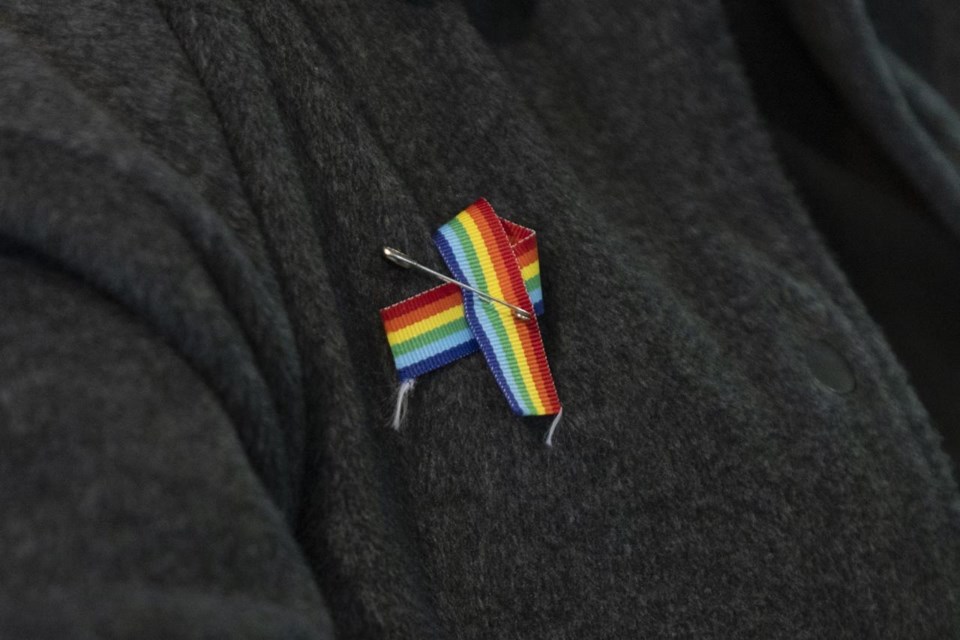FREDERICTON — The New Brunswick government has expanded a review of the province's policy on sexual orientation in schools to include access to washroom facilities on the basis of gender identity.
"We remain committed to working every day to ensuring a safe and respectful learning environment for all students in New Brunswick,” said a statement released this week from Premier Blaine Higgs and Education Minister Bill Hogan.
Policy 713, which was introduced in 2020, establishes minimum standards for schools to ensure a safe, welcoming and inclusive environment for LGBTQ students.
The policy states that all students will have access to washroom facilities that align with their gender identity.
"The washroom facilities will be available to all students in a non-stigmatizing manner. All schools will have at least one universal washroom facility that is accessible at all times," it reads.
The government had earlier ordered a review of two parts of the policy — the provision for students under 16 to change their preferred first name and pronoun without any communication to parents, and the process for team sport selection and participation — but has now included washrooms.
"Through this review, our goal is to make this policy as clear as possible for students and families," the government said, adding that stakeholders would be consulted as part of the process.
Wayne MacKay, professor emeritus at Dalhousie University's Schulich school of law, said the review could stem from female students expressing discomfort about biological males using those washrooms.
Even then, he said it would have to be a justifiable threat.
The policy review, MacKay said, is a reminder of when people were afraid of HIV — the virus that causes AIDS — and how it was spread.
"You can't justify limiting rights because of unreasonable fears or unreasonable concerns expressed by people," he said Friday. "You might justify a limitation on rights if they are reasonable."
He said someone who was acting disruptive or "being a predator" could be banned from a bathroom, regardless of their gender.
"In any event, the real question there would be that surely washrooms should be safe in school from predators or any kind of problem, regardless of what kind of washroom it was."
MacKay noted that both the New Brunswick and the federal Human Rights Act have clear guidelines on washrooms.
The province's Human Rights Act prohibits discrimination of "a trans person from using the washroom or change facility that aligns with their gender identity."
In 2017 the federal government said transgender people already use gender-appropriate bathrooms and pose no greater threat than anyone else.
"Transgender persons have a right to be treated according to their deeply-felt gender identity," it said.
"In many situations, that includes the right of a person who lives as a woman to use women’s facilities, even if she has some male anatomical characteristics."
Anglophone East District Education Council member Kristin Cavoukian said there are students who feel "a sense of discomfort" using gendered washrooms.
"The availability of universal washrooms has been … recognized as a reasonable thing for any institution that is able to do so to do," she said.
Cavoukian said she wasn't aware of any complaints from students, staff or parents about gender-neutral washrooms.
"This is simply a non-issue," she said.
"Most kids these days, are absolutely used to (gender-neutral washrooms). This is the new normal. This is actually, I would say, making kids who are members of the LGBTQ community feel more unsafe than they already did."
The government has said the policy review was undertaken following "hundreds" of complaints from parents.
New Brunswick's child and youth advocate, Kelly Lamrock, revealed last week that the decision to review the policy was made following three complaints.
He said the government provided three complaints when he asked for copies of what they received, and none of them were from teachers or students.
There was evidence in the emails that online hoaxes and conspiracy theories were fuelling some of the opposition to the policy, he added.
Cavoukian said that as a member of the Anglophone East District Education Council she should be considered a key stakeholder, but has yet to be contacted by the government to participate in the consultation process.
"I'm not aware of any emails that we received prior to the government deciding to review this policy," she said. "Not a single one."
Connie Keating, the New Brunswick Teachers’ Association president, said the organization is "deeply concerned" by the lack of transparency.
"(We) have yet to be informed of how the review will occur and who will be called to the table," she said in a statement.
"We expect that human rights be respected so that all students and all members of our school communities are safe in schools.”
This report by The Canadian Press was first published May 26, 2023.
The Canadian Press



